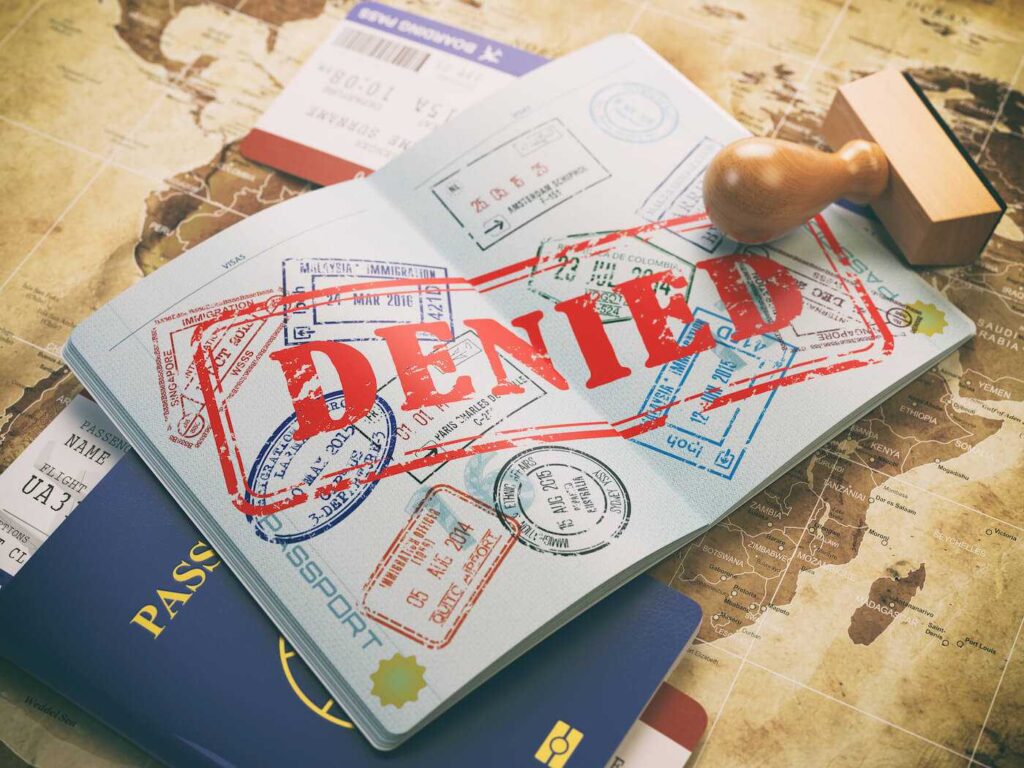Immigration changes are expected when a country experiences an increased influx of immigrants. It is no longer news that the japa syndrome has taken over Nigerians. Every day, we hear news of Nigerians migrating to other countries like the United Kingdom, the United States of America and Canada, among others, to search for greener pastures.
Nigerians are not the only ones japaing to these countries. The increased immigration is telling on the host countries. There have been reported news of immigrants selfishly taking advantage of the system, the rising cost of housing and other sources of living which affects citizens and all sorts of things in that regard.
Therefore, the governments of the affected countries have made immigration changes to ensure that their citizens are protected. Let us discuss these changes, particularly in the UK, which is one of the hottest japa destinations for Nigerians.
What are immigration changes?
Immigration generally means individuals, families or groups moving from their countries to other countries, intending to become permanent residents in the latter. Therefore, immigration changes refer to immigration laws being revised and effected by the government of a host country. This act is often implemented from time to time as a way for a government to control the number of people who want to move into their country. Sometimes, the new law does not favour immigrants. But most times, they favour citizens who are the primary responsibilities of a government.
ALSO READ: Canadian Woman Disappointed As Adopted Nigerian Child’s Passport Delayed For Second Year
UK immigration changes

On 4 December 2023, the UK Home Secretary, James Cleverly, announced changes to visa rules. According to Cleverly, migration to the UK “is far too high and needs to come down”. In addition, the UK Home Secretary revealed that “recent figures from the Office for National Statistics show a provisional estimate of net migration for the year ending June 2023 of 672,000”. Although he admitted that the figures are lower than that of 2022 which recorded about 745,000, the figure was, according to him, still too high.
The increased immigration net figures are mostly fuelled by an increase in overseas professionals coming to work in health and social care systems, students and new schemes that were introduced for humanitarian reasons, such as the British Nationals (Overseas) scheme for those arriving from Hong Kong and the Ukraine schemes.
Therefore, the Home Secretary introduced a “five-point plan” to reduce immigration. One of such changes includes restrictions on most students bringing dependants. This will reportedly slash about 153,000 immigrants entering the country through the student visa route. With the new immigration policies, the Home Office hopes to stop about 300,000 immigrants from entering the UK.
On December 21, 2023, the Home Office published more information about the immigration changes which will begin to take effect in the spring of 2024.
New UK immigration rules 2023

Below are the five immigration changes introduced by the UK Home Office:
Social care workers will not be allowed to bring in dependents
According to the Home Secretary, the first plan is to stop overseas care workers from bringing in family dependents. This is to ensure the “end of the abuse of the health and care visa”. The Home Secretary revealed that approximately 120,000 dependants accompanied 100,000 care workers and senior care workers in the year ending September 2023. Only 25 per cent of dependants were estimated to be in work while the rest are drawing on public services.
To forestall more dependent immigration, care firms in England will be regulated by the Care Quality Commission to sponsor visas. In addition, the Home Office increased the annual immigration health surcharge by 66 per cent, from £624 to £1,035, as a measure to meet the £1.3 billion target in the healthcare services sector every year.
Skilled worker minimum salary
The Home Office announced a substantial increase in the minimum salary threshold for Skilled Worker visas, which rose to nearly 50 per cent from £26,200 to £38,700 per annum. This is in line with the median full-time wage for those skilled workers. Only health and care workers are exempted from this new law as the NHS highly rely on their services.
Note that this new rule does not affect those already in the Skilled Worker route before the Immigration Rules changes. However, it is expected that their pay should progress at the same rate as resident workers. This is because they would be subject to the updated 25th percentiles using the latest pay data when next they apply to change employment, extend or settle.
Shortage Occupation List (SOL)
The SOL has been scrapped and will be replaced with a new Immigration Salary List (ISL). In the Salary List, about 20 per cent discount to the minimum salary for shortage occupation roles will be removed. Hence, this will affect the number of occupations on the list. Sectors such as technology, engineering and construction will be affected.
Graduate route
International master’s students have already been banned from bringing family members to the UK. The Home Secretary revealed that he asked the Migration Advisory Committee to review the graduate route to prevent abuse and protect the integrity and quality of the UK’s higher education sector.
Conclusion
The immigration changes in the UK mark a significant shift in the UK’s immigration policies, which aim to strike a balance between controlling migration numbers and addressing skills shortages. Families and businesses will be greatly affected.
Therefore, it is smart a idea to be strategic in their next move. For instance, it is ideal for spouses, partners, and fiances of immigrants to consider applying before the minimum income requirement is increased by spring 2024. Alternatively, they can assess their eligibility to enter or remain in the UK on human rights grounds.
They can do this through third-party support or by invoking an exception to the financial requirement. However, if you considering taking any of these two routes, then involve the services of a legal practitioner due to the complexity of such applications.

